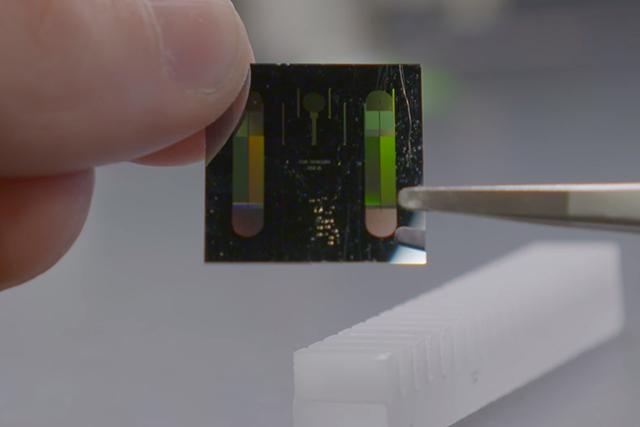Multinational technology giant IBM has developed a “lab-on-a-chip” device that’s designed to separate biological particles at the nanoscale to enable physicians to detect diseases such as cancer before symptoms appear.

IBM worked with a team from the Icahn School of Medicine at Mount Sinai, New York, to create the chip and plans to test it on prostate cancer. Image source: E&T.
By separating bioparticles down to 20 nanometers in diameter, the chip grants access to important particles such as DNA, viruses, and exosomes, which are small fluid-filled sacs containing material originating from cells. Once separated, the particles can be analyzed by physicians to reveal signs of disease before patients experience any physical symptoms in order to provide the best possible outcome.
Until this development, the smallest bioparticle that could be separated by size with on-chip technologies was about 50 times larger. IBM worked with a team from the Icahn School of Medicine at Mount Sinai, New York, to create the chip and plans to test it on prostate cancer, which is the most common cancer in men in the U.S.
This day in age, being the era of precision medicine, exosomes are increasingly being viewed as useful biomarkers for the diagnosis and prognosis of malignant tumors. Because exosomes are released in easily accessibly bodily fluids such as blood, saliva, and urine, they’re a useful biomedical tool, as they can be used in the context of less invasive liquid biopsies to reveal the origin and nature of a cancer.
Exosomes range in size from 20-140 nanometers and contain information about the health of the originating cell they’re shed from. A determination of the size, surface proteins, and nucleic acid cargo carried by exosomes can give essential information about the presence and state of developing cancer and other diseases. The IBM team targeted exosomes with their lab-on-chip technology as existing scientific techniques face challenges for separating and purifying exosomes in liquid biopsies. The team’s results show they could separate and detect particles as small as 20 nanometers from smaller particles, that exosomes of size 100 nanometers and larger could be separated from smaller exosomes, and that separation can take place in spite of diffusion.
With Mount Sinai, IBM plans to confirm its technology is able to pick up exosomes with cancer-specific biomarkers from patient liquid biopsies. With the ability to sort bioparticles at the nanoscale, Mount Sinai hopes that IBM’s technology can provide a new method to eavesdrop on the messages carried by exosomes for cell-to-cell communications.
Source: IBM
Advertisement
Learn more about Electronic Products Magazine





